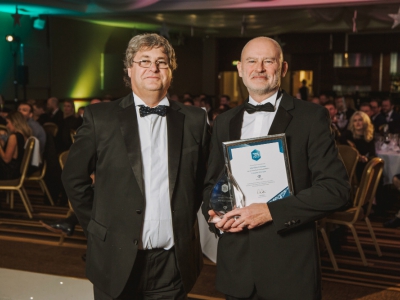Although glass can be recycled back to glass indefinitely, most glazing, refurbishment and demolition glass waste currently ends up as aggregate – if it manages to avoid landfill. We want to see this glass re-melted to make new glass products because this would save more energy and carbon dioxide emissions.
Successfully recycling flat glass is possible. For example the Vlakglas foundation, which operates a successful, nationwide flat glass recycling system in the Netherlands, collected 70,000 tonnes of cullet for re-melt in 2016.
Collaboration and shared understanding between supply chain partners will be key to making flat glass recycling commercially viable.
- Flat glass producers
- Flat glass re-processors
-
- URM
- GRUK
- GB Cullet
- MKD32 Ltd
- Viridor Resource Management Ltd
- Other local collectors are available
- Collaborators
- Useful resources
We’ve been carrying out stakeholder interviews and compiling case studies to identify what has worked and might work. We co-hosted an event with Zero Waste Scotland in October 2017 to discuss and share ideas for how a flat glass recovery network could operate in Scotland. This was linked to a call for applications to the country’s £18 million Circular Economy Investment Fund.
Where glass-to-glass recycling isn’t feasible, the FISSAC project is investigating using glass as an additive to cement and concrete – including full scientific analysis and testing of the materials and pilot builds.
Get involved
If you would like to receive updates about this project, and invitations to take part in research, focus groups and interviews here in the UK, email information@britglass.co.uk with your contact details and a few lines about your interest.
We’re particularly keen to hear from and work with companies across Europe with interests in construction, demolition and recycling.
British Glass is a partner in FISSAC* – a €9million European project to create economically viable sources of raw materials from industrial and construction waste. Through this we’re working to identify solutions to increase recycling of flat glass waste in Europe.
* The FISSAC project is working to increase recycling of construction waste by partnering with the manufacturing, demolition and construction sectors to trial the use of secondary raw materials made from glass, ceramic, slags, stone, rubber, plastic and wood wastes. The FISSAC project has received funding from the European Union’s Horizon 2020 research and innovation program under grant agreement no 642154. Find out more at www.fissacproject.eu



